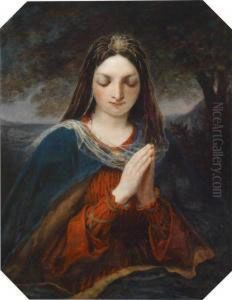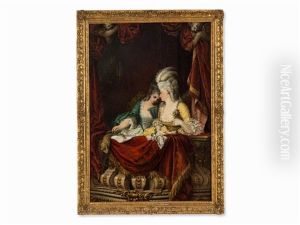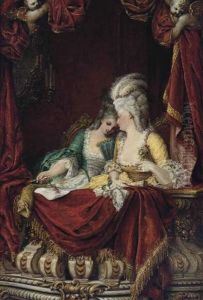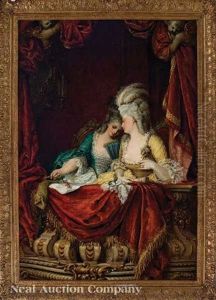Adolf Pichler Paintings
Adolf Pichler was an Austrian writer, poet, and a significant figure in the intellectual and cultural circles of the 19th century, born on September 19, 1819, in Innsbruck, Tyrol. While he might not be universally recognized today, Pichler's contributions to literature, as well as to the sciences, particularly geology, during his lifetime were notable. His multifaceted career reflects the spirit of his time, where the boundaries between science, literature, and philosophy were more fluid than they are today.
Pichler's academic journey began with his studies in philosophy and law at the University of Innsbruck, but his interests soon expanded into the natural sciences, which would play a significant role in his literary work. His passion for the Alpine landscapes of his native Tyrol and his scientific explorations significantly influenced his poetry and narrative prose, imbuing them with a sense of place and a deep appreciation for the natural world. Pichler was not just a poet and novelist; he was also a dedicated teacher and a respected geologist, making substantial contributions to the study of the Tyrolean Alps.
Throughout his career, Pichler remained deeply engaged with the cultural and intellectual life of Innsbruck and the broader Austrian Empire. He was a member of various scientific societies and contributed to the cultural life of his region through his literary works, which often explored themes of nature, history, and the human condition. His work as a geologist and his literary output were both expressions of his profound connection to his homeland and its landscapes. Pichler's legacy, although perhaps overshadowed by more prominent figures of the period, reflects the rich intellectual and cultural milieu of 19th-century Austria.
Adolf Pichler's life was a testament to the power of interdisciplinary pursuits. He died on November 15, 1900, leaving behind a body of work that continues to be studied by those interested in the intersections of literature, science, and regional identity. His contributions to both the sciences and the arts make him a fascinating figure in the study of European intellectual history, embodying the Renaissance ideal of the polymath in a modern context.



